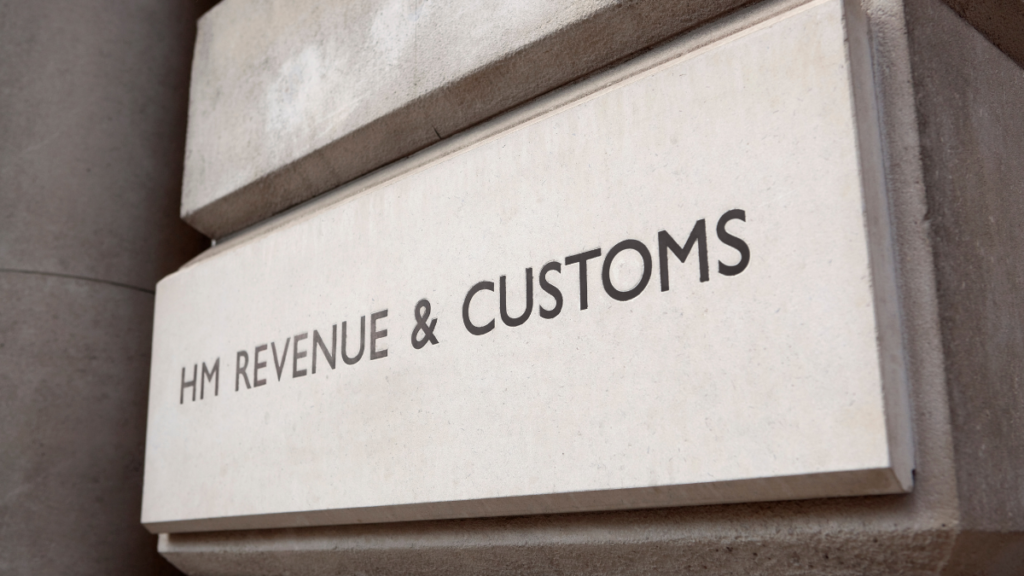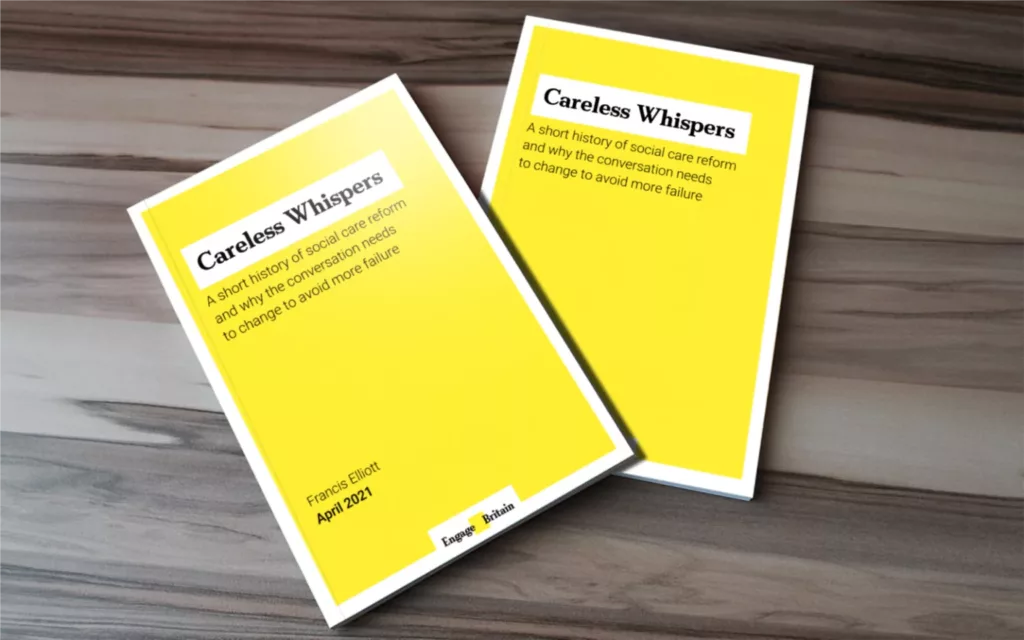COMMENTARY
How will Boris Johnson sell his social care tax rise?
Raising taxes is a rare event in British politics. Francis Elliott looks at how National Insurance, Britain’s least unpopular tax, may be Boris Johnson’s answer to funding a health and care package.

Boris Johnson is on the brink of raising taxes to fund a health and care spending package two decades after Tony Blair embarked on his own NHS tax rises.
There are striking differences in their approaches though, when it comes to preparing the ground for this rare event in British politics.
Blair’s 2002 tax rise came at the end of a long, high-profile process that sought to put the long-term future of the health service at the centre of a national discussion.
By contrast there has been little to no debate ahead of Boris Johnson’s health and care announcement, that is expected within weeks.
Although it is too late to prepare the public, a genuine debate over the needs and resources of both the NHS and the care system is vital if the full benefits of reform are to be realised.
Learning from Blair
Two decades ago Mr Blair was very clear about his objective: to raise UK health spending to the EU average. Mr Johnson’s aim is less clear.
He has said he wants to ‘fix’ social care but it has also been reported that the tax rise will be used to clear the post-pandemic backlog in NHS treatment.
It is not yet apparent what Boris Johnson’s primary objective for social care is. Is it to protect the elderly from having to sell their homes to pay for residential care? Or will it be a wider offer?
Nor has the Prime Minister yet said what he intends to be the main objective for any increase in NHS spending to cope with the aftermath of Covid-19.
Mr Blair was responding to years of sustained pressure for an increase to health funding – Mr Johnson is acting in advance of, rather than in response to, public discontent.
Then there is the question of timing.
The Labour prime minister set his target in January 2000, more than two years before the tax rise was announced in the July 2002 budget. Mr Johnson is expected to announce the tax rise this autumn without the same run-up.
The story of the 2002 rise has been laid out brilliantly by Nick Timmins in a recent Health Foundation Paper, The Most Expensive Breakfast in History.
Tony Blair and Gordon Brown prepared the ground for their tax rise with a two-year review of the NHS’s future needs by the banker Derek Wanless.
The report, Securing our future health: Taking a long-term view, attempted to map what the NHS would really need over 20 years.
While Mr Johnson’s ‘offer’ may as yet be unclear, the ‘ask’ seems clearer.
He and Rishi Sunak, the Chancellor, reached a provisional agreement on a 1 per cent increase in National Insurance in July in discussions that included Sajid Javid, the health secretary.
Britain’s least unpopular tax
Mr Blair and Mr Brown also chose to increase National Insurance. It is by some margin Britain’s least unpopular tax. Voters like that there appears to be a relation between what is paid and what is received.
But in fact revenues raised by NI flow into general Treasury coffers just like income tax and VAT, and the relationship with spending on benefits like state pensions is notional at best and in the case of health non-existent.
This has led some Tory MPs to label NI a ‘fraud’ because it is not really hypothecated, the term used to describe taxes raised for a specific purpose.
Additionally, because NI is levied on those of working age, it is said to be generationally unfair if justified on the grounds of protecting the assets of those in retirement.
Mr Johnson is additionally burdened with a manifesto commitment not to raise any of the three main taxes: income tax, NI or VAT.
The political attraction of wrapping up post-pandemic NHS spending and social care is that it will help win public consent.
It is much easier to ‘sell’ a tax rise on the grounds that it will cut waiting lists than because it mitigates a theoretical risk of needing care.
It softens the criticism of those who think it unfair that the working should pay yet more for the retired.
But it becomes more difficult to credibly claim that you have ‘fixed’ social care and provided it with sustainable long-term funding.
A national conversation over care

If resources raised from extra taxes are to be shared between the NHS and care, there is an obvious danger that over time the health service will once again take this money.
It also misses an opportunity to hold a national conversation about care. Polling conducted for Engage Britain by Yonder shows the lack of public understanding when it comes to the sector.
More than half of those asked did not know whether social care is free for everyone, with only 26 per cent answering, correctly, that it was not. (54 per cent did not know, 20 per cent believed it is free for all).
This lack of understanding is one reason why care has consistently lost out to the NHS, which delivers a higher rate of political return on investment.
Preparing the ground
It seems likely the government will announce a taper under which the NHS ‘take’ from the additional tax revenue declines over time eventually leaving care as the sole beneficiary.
Can we be sure, however, that the same dynamic – which has repeatedly seen care lose out to the NHS – won’t prevail in the years to come?
Ed Balls thinks Boris Johnson has missed a trick in not emulating the way the Blair government prepared the ground for the 2002 tax rise for the NHS and says he pressed Gordon Brown for a similar approach to social care in 2009.
‘We had won the 1997 election on a promise to save the NHS but we knew we hadn’t yet prepared it for the 21st century and there was quite a bit of scepticism over whether the NHS could survive as a model. Even as late as 2005 Tories wanted to increase private insurance with the so-called “patient passport”.
Ed Balls
The point about [the Wanless review] wasn’t just about the tax rise, it was to have this big public argument about the future. Now whatever you think about what followed the health service improved to the extent to which by 2010 David Cameron was promising to cut the deficit not the NHS.’
As social care became a pressing problem towards the end of the last Labour government Ed Balls, sceptical of Andy Burnham’s so-called death tax, said that he pressed Gordon Brown to hold a similar ‘big public process’ in 2009.
The need for a clear vision

Mr Johnson is approaching what is likely to be one of the defining moments of his premiership if he presses ahead with a NI rise for health and care.
The increase to national insurance in 2002 was ‘the only serious, non-forced, discretionary tax rise since at least 1979,’ the former Treasury permanent secretary Lord Macpherson told Mr Timmins.
It is not, in short, something politicians do lightly or often.
The last time it was done it transformed public perceptions of the NHS and settled the future of its funding model for a generation. What are the ambitions for this increase?
There is already an urgent need to address the mismatch between peoples’ expectations of health and care services and the resources we’re putting in as a society.
Costs, driven by an ageing population, were rising before the pandemic. And they’ll continue to rise in the future.
If the rise in NI can’t address this, then what will? And is it even credible to think the money will ever find its way to the care system, if it means taking it away from the NHS?
It certainly won’t unless there is a clear vision for the future that the public can get behind.
Mr Johnson has a chance to start to resolve that mismatch. But his tax rise needs a vision on the future of both health and care that commands broad public support.
Francis Elliott is Director of Advocacy at Engage Britain. A version of this article was published by The Spectator.
You may also be interested in

Francis Elliott reviews previous attempts and asks – what if the starting point was asking how people experience social care in their day to day lives?… read more

Engage Britain’s recent survey reveals that the NHS unites us in being ‘proud to be British’. But millions face having to go private, fighting for treatment or being dismissed by doctors… read more